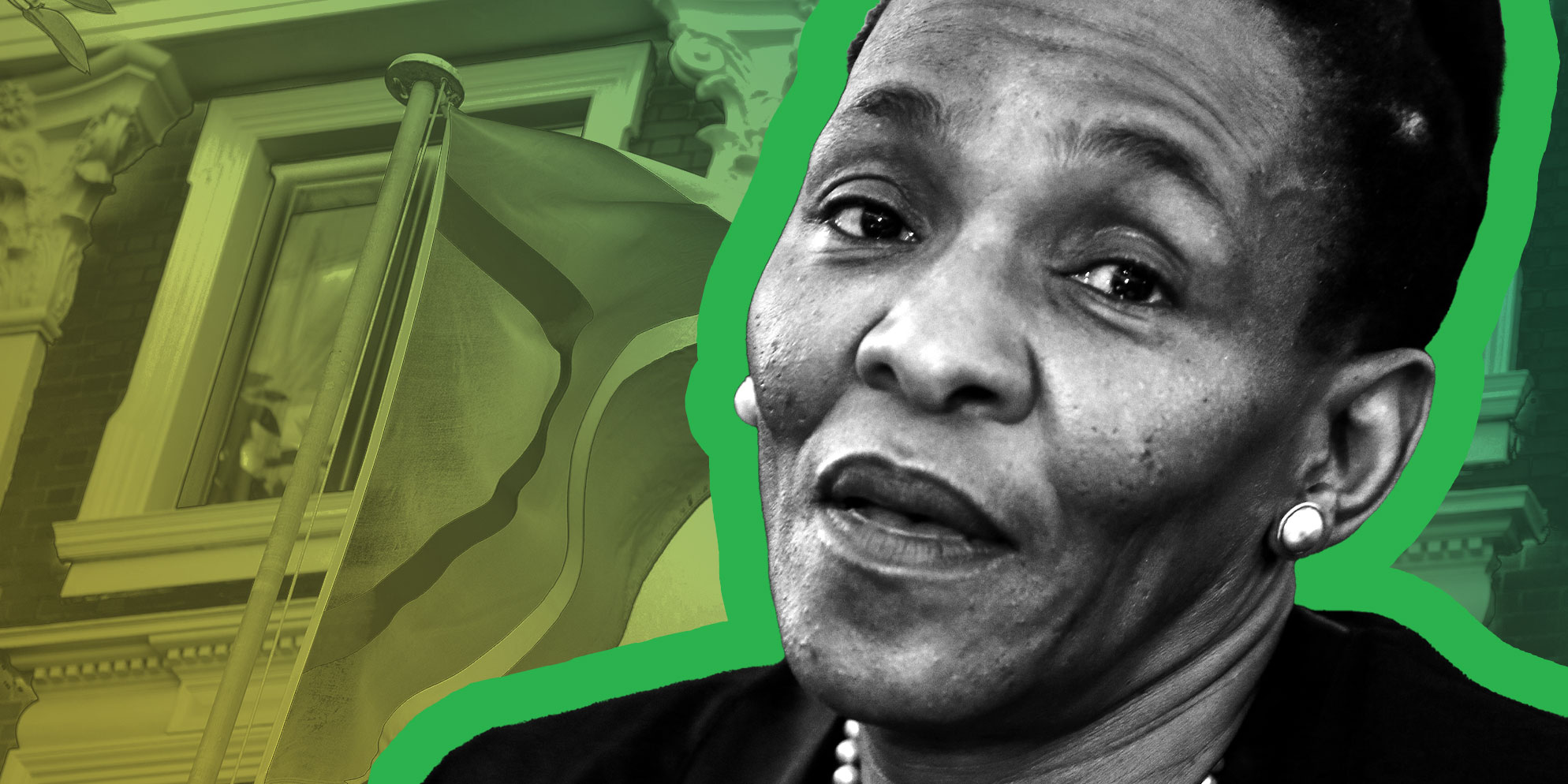After Judge Raymond Zondo’s short term as Chief Justice, the new Chief Justice, Mandisa Maya, now has the opportunity to shape our judiciary and law over a much longer period.
As the President of the Supreme Court of Appeal for five years and Zondo’s deputy for the past two years, she has had one of the best possible preparations for this job.
She takes office with almost universal support, with no other contender competing for the position during the last round of interviews at the Judicial Service Commission (JSC).
One of her first and most important tasks will be to stamp her authority as Chief Justice.
This was a problem that former Chief Justice Mogoeng Mogoeng faced.
After the government of the then president Jacob Zuma defied a court order by failing to arrest the Sudanese leader Omar al-Bashir when he was in South Africa, it was clear that judges were looking to Mogoeng to lead them. This was partly because he was an unexpected choice and partly because Dikgang Moseneke, the Deputy Chief Justice at the time, had immense legitimacy.
Our politics being what it is, it is entirely likely that a political situation will create a moment in which Maya will have to lead the Constitutional Court in a case that will have important consequences.
It will be important for her not to duck difficult cases and complex decisions.
Individual judges will be criticised regularly, but politicians such as Zuma and Julius Malema are likely to continue to attack the judiciary as a whole. One of Maya’s more difficult decisions will be when to publicly defend the judiciary and when to remain silent.
Zondo did hold a public event to defend the judiciary, but such moments are fraught with difficulty. If the Chief Justice is seen to over-reach, it will look like she is playing a political role and if she does nothing judges will feel unprotected.
Managing this tension will be one of the hardest aspects of her job.
Judicial Service Commission
In addition, there will be no avoiding the publicity that chairing the JSC will bring.
Maya will play a crucial role in a body which has been delegitimised over the years. Mogoeng’s behaviour in starting an interview process with a final list of judges for appointment at the Constitutional Court resulted in the entire process having to be repeated.
The behaviour of Dali Mpofu and others in making claims without evidence against Gauteng Judge President Dunstan Mlambo revealed how important it is for a strong JSC chair.
Also, several NGOs have demanded, correctly, that the JSC follow certain criteria when appointing judges so that it is clear why decisions are made.
At the centre of this is the tension between the politicians on the JSC, legal practitioners who follow the demands of their political agendas and the members of the judiciary on the panel.
One of the most difficult people Maya will have to deal with is Malema, who has used his position on the JSC for narrow political gains.
Another controversial member of the JSC is John Hlophe, the first judge in SA’s democratic history to be impeached. However, Maya appears to have had a close professional relationship with him, which could prevent any unpleasantness between them.
(It is also not certain that Hlophe will take up his position on the JSC as there are several court applications aimed at preventing him from doing so.)
Judges behaving badly
One of the other problems that Maya might face is judges behaving badly.
For example, Judge Nomonde Mngqibisa-Thusi was suspended because she had not provided judgments in 27 cases she had heard.
The JSC did not find her guilty of gross misconduct, partly because it ruled she had suffered from “spirituality challenges”.
While many might well have sympathy with her, others may feel that unless a judge is physically incapacitated, they have a duty to decide the cases they hear.
Then there is the possibility that Mogoeng may make comments that require a response from Maya.
In his final months as Chief Justice, he questioned Covid-19 vaccines and made a political statement in support of Israel.
(He is still awaiting the fulfilment of his prophecy that he would be elected President after the 29 May election.)
Perhaps the biggest problem Maya will confront is one she cannot resolve on her own, even with the full support of the judiciary: the system that she leads no longer has legitimacy.
Many in SA have lost faith in the rule of law. In a country where the murder detection rate has fallen to 14%, they have no reason to trust anyone in the legal system.
There are processes that are supposed to lead to accountability, but endless delays and appeals, and the acquittal of people with strong evidence against them, mean that justice is often not seen to be done.
Maya is due to serve in this position for a relatively long term. She has the opportunity to steady the judiciary and to make an important mark.
But it won’t be easy. DM





